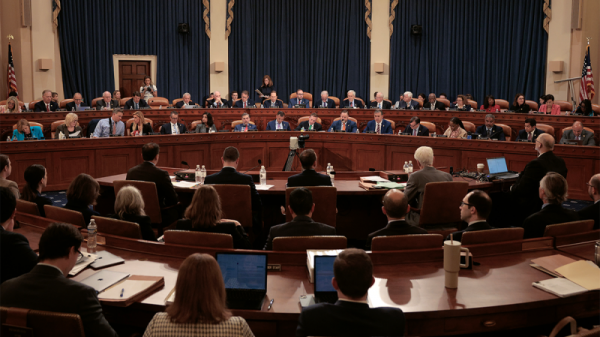
Five years removed from the onset of the Covid pandemic, Google is demanding that some remote employees return to the office if they want to keep their jobs and avoid being part of broader cost cuts at the company.
Several units within Google have told remote staffers that their roles may be at risk if they don’t start showing up at the closest office for a hybrid work schedule, according to internal documents viewed by CNBC. Some of those employees were previously approved for remote work.
As the pandemic slips further into the rearview mirror, more companies are tightening their restrictions on remote work, forcing some staffers who moved to distant locations to reconsider their priorities if they want to maintain their employment. The change in tone is particularly acute in the tech industry, which jumped so aggressively into flexible work arrangements in 2020 that San Francisco’s commercial real estate market is still struggling to recover.
Google began offering some U.S. full-time employees voluntary buyouts at the beginning of 2025, and some remote staffers were told that would be their only option if they didn’t return to the nearest office at least three days a week.
The latest threats land at a time when Google and many of its tech peers are looking to slash costs while simultaneously pouring money into artificial intelligence, which requires hefty expenditures on infrastructure and technical talent. Since conducting widespread layoffs in early 2023, Google has undertaken targeted cuts across various teams, emphasizing the importance of increased AI investments.
As of the end of last year, Google had about 183,000 employees, down from roughly 190,000 two years earlier.

Google co-founder Sergey Brin told AI workers in February that they should be in the office every weekday, with 60 hours a week being “the sweet spot of productivity,” according to a memo viewed by CNBC. Brin said the company has to “turbocharge” efforts to keep up with AI competition, which “has accelerated immensely.”
Courtenay Mencini, a Google spokesperson, said the decisions around remote worker return demands are based on individual teams and not a companywide policy.
“As we’ve said before, in-person collaboration is an important part of how we innovate and solve complex problems,” Mencini said in a statement to CNBC. “To support this, some teams have asked remote employees that live near an office to return to in-person work three days a week.”
According to one recent notice, employees in Google Technical Services were told that they’re required to switch to a hybrid office schedule or take a voluntary exit package. Remote employees in the unit are being offered a one-time paid relocation expense to move within 50 miles of an office.
Remote employees in human resources, or what Google calls People Operations, who live within 50 miles of an office, are required to be in person on a hybrid basis by mid-April or their role will be eliminated, according to an internal memo. Staffers in that unit who are approved for remote work and live more than 50 miles away from an office can keep their current arrangements, but will have to go hybrid if they want new roles at the company.
Google previously offered a voluntary exit program to U.S.-based full-time employees in People Operations, starting in March, according to a memo sent by HR chief Fiona Cicconi in February.
That came after the company said in January that it would be offering voluntary exit packages to full-time employees in the U.S. in the Platforms and Devices group, which includes Android, Chrome and products like Fitbit and Nest. The unit has made cuts to nearly two-dozen teams as of this month. While internal correspondence indicated that remote work was a factor in the layoffs, Mencini said it was not a main consideration for the changes.
A year ago, Google combined its Android unit with its hardware group under the leadership of Rick Osterloh, a senior vice president. Osterloh said in January that the voluntary exit plan may be a fit for employees who struggle with the hybrid work schedule.
Mencini told CNBC that, since the groups merged, the team has “focused on becoming more nimble and operating more effectively and this included making some job reductions in addition to the voluntary exit program.” She added that the unit continues to hire in the U.S. and globally.































